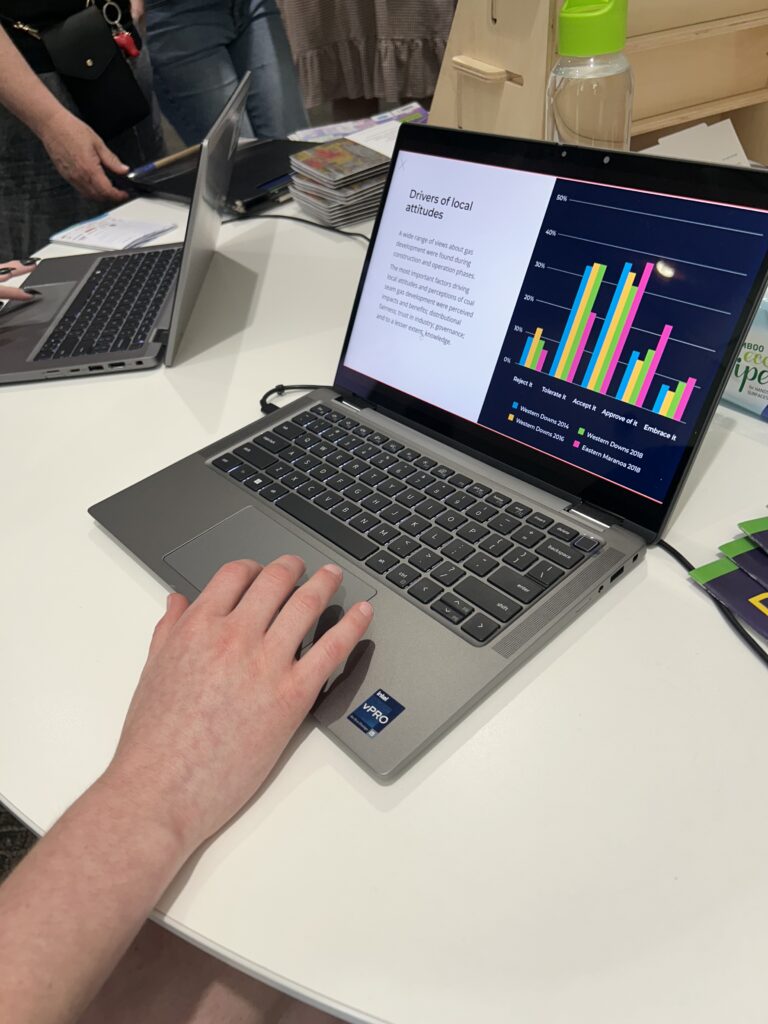Energising WA students for a STEM future
CSIRO’s presence at the Energy Club WA’s annual Student Expo in December last year allowed the students to consider science, technology, engineering and maths (STEM) research career options, and provided insights into CSIRO’s work in the energy sector.
Energy Club WA hosted over 300 year 8-10 students from high schools across Western Australia at the 2023 Expo, which is part of its Next Generation Schools Program. Held at Edith Cowan University, the Expo provided those students interested in STEM the opportunity to learn, ask questions and engage with professional members of the energy industry.
Excited groups of students passed through a variety of booths that incorporated fun, interactive and educational activities relating to energy.
CSIRO research display

CSIRO at the WA Student Expo
The CSIRO booth consisted of three different stations for the students to learn about some of the energy research undertaken across the organisation: the impacts of onshore gas, hydrogen as an energy resource and a low-emissions energy future.
CSIRO’s Gas Industry Social and Environmental Research Alliance (GISERA) provided an overview of research from the past 10 years via the interactive ‘Take a Tour’ web platform. Take a Tour showcases selected GISERA research on the social, economic and environmental impacts of the onshore gas industry in a visual and interactive way.
Students learnt about the importance of preserving trees that sustain the glossy black-cockatoo, the potential economic impacts on communities in regional locations where gas development takes place, and the need to understand surface water flows to improve decisions around gas industry infrastructure establishment.
The hydrogen station displayed a small-scale working model of a hydrogen fuel-cell car and refuelling system, and the students had plenty of questions. Small groups of students were taken through the hydrogen refuelling process: the compact vehicle included an on-board hydrogen storage tank, which was powered through a fuel-cell system attached to the car’s electric motor; and an external hydrogen refuelling system was then connected to the vehicle’s storage tank.
Students also had an opportunity to experience a virtual reality presentation that explained CSIRO’s work towards a low emission future. Always popular with the students, this VR experience explored CSIRO’s research innovations ranging from steel production and agriculture to the aviation industry, hydrogen and integrated energy systems.
In addition to the high school students, teachers, industry partners and PhD students attending the Expo were able to ask questions about CSIRO research and engage with the activities. Armed with extra information on CSIRO’s energy science, the teachers will be able to further encourage their students to pursue research careers in science and consider CSIRO as an option should they be keen to participate in future energy research.
